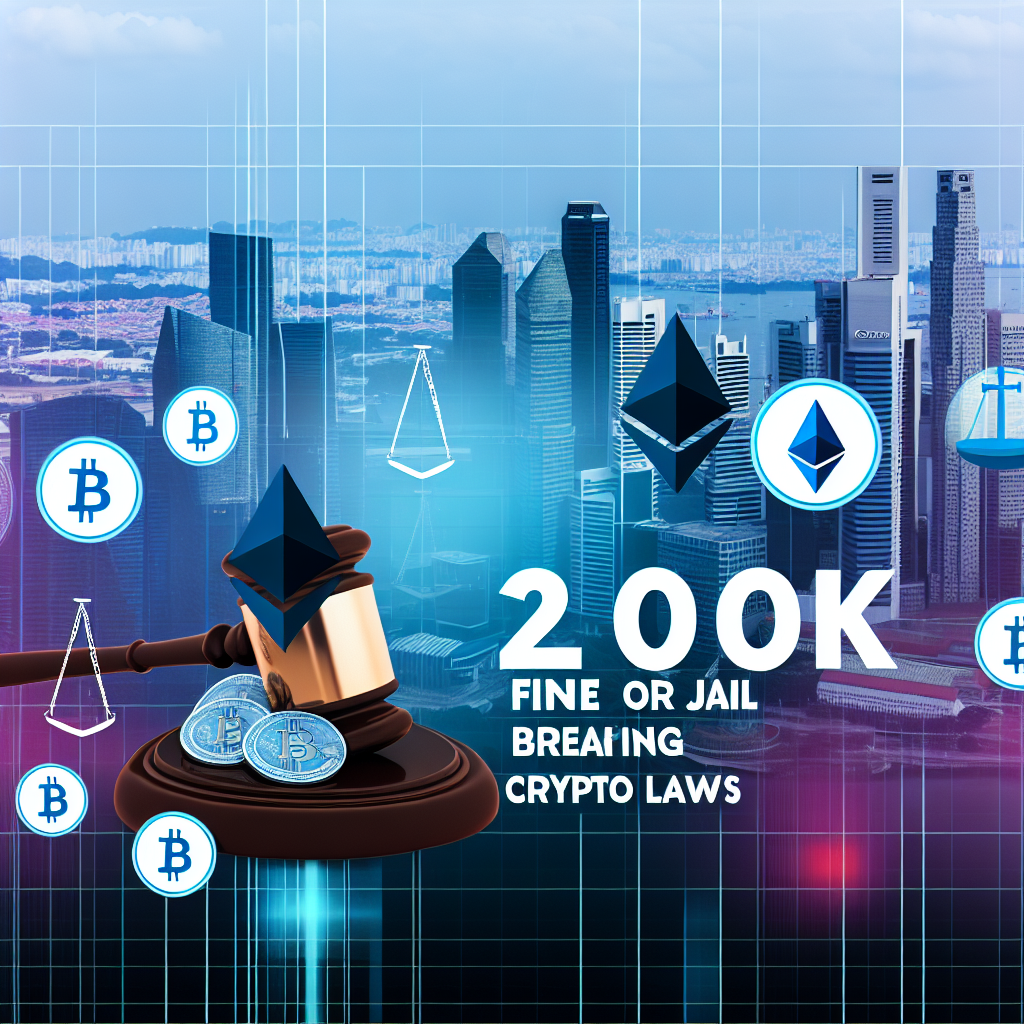Singapore’s Crypto Regulations and the June 30th deadline
The Singapore Monetary Authority (MAS) has provided a clear delegation that all Singapore-based entities that provide digital token services to clients overseas must obtain DTSP licenses or halt cross-border operations.
As of June 30, 2025, the entity established in Singapore is one of the following: whether it is a company, partnership or individual that provides digital token services to clients overseas:
Under Financial Services and Markets (FSM) Act 2022, obtain a Digital Token Service Provider (DTSP) license and suspend operations involving foreign markets.
This directive leaves no room for interpretation. MAS explicitly states that there are no bounty periods, transitional arrangements and expansions.
Entities within these new rules must adhere to or close cross-border digital asset activity.
Importantly, these restrictions apply regardless of the size of your overseas business activities. Even companies whose foreign customers represent only a small portion of their revenues are affected. MAS concluded a key regulatory gap that allows Singapore-based crypto companies to serve global users while avoiding stricter rules in other jurisdictions.
Did you know? MAS requires a minimum basic capital of SGD 250,000 for DTSP applications (even partnerships and individuals), and users must maintain it as cash deposits or capital contributions.
Under Singapore’s new law, who qualifies as a digital token service provider?
New rules in Singapore define DTSP broadly to include entities that provide token-related services overseas, regardless of size, structure, or direct user involvement.
According to section 137 of the FSM Act, a Digital Token Service Provider (DTSP) includes employees or businesses.
Transfer of digital payment tokens. Exchange between a digital token and a Fiat or other token.
MAS intentionally draws a large definition. Providing token-related services to clients outside of Singapore includes centralized crypto exchanges, Defi platforms, wallet providers, token issuers, and even non-crypto companies.
This means that Singapore-based startups running marketing campaigns for foreign crypto projects could be considered DTSPs even if they don’t get into the user fund directly.
Regulatory lenses focus on where the server is or where the end users are located, rather than where they are ingested.
MAS emphasizes that business models or revenue sizes do not exempt compliance. Small players, part-time projects, or even side ventures tied to crypto are classified as powers of attorney.
The agency has explicitly warned that it will take enforcement action against DTSPs that have not registered or terminated their overseas operations by the June deadline.
Did you know? Pure utility or governance token providers are exempt from DTSP licenses, unlike exchanges and management businesses involved in payment tokens.
MAS Crypto Deadline 2025
Despite industry lobbying, MAS rejected all requests for phased implementation.
Crypto service providers and industry groups were urging regulators to allow migration windows, temporary exemption processes, or at least fast truck license applications.
Many argued that a sudden timeline (often less than a month) gave insufficient time to rebuild or rewind the service.
Mas dismissed these concerns and said that allowing token services to continue during the transition would expose the market to unacceptable risks, particularly related to financial crime.
As a result, regulatory updates are on the cliff of compliance. The companies are:
By June 30th, the overseas crypto market will be completely closed.
There are no exceptions.
Singapore $200k Crypto Fines and Prison Risks
Violating the June 30th deadline is a criminal offence under Singapore law.
Companies that continue to operate as DTSPs for international clients without a valid license are in violation of FSM Act and Section 137 of the Face.
Fines up to SGD 250,000 (approximately 200,000 US$) and restrictions up to three years.
MAS emphasizes that these penalties apply regardless of the size of the business or the scope of the violation.
This improves decisions from business compliance issues to legal survival issues. You are fully licensed or violated. Also, many companies may not be able to qualify as MAS is expected to conservatively grant licenses, citing ongoing AML/CFT concerns.
Singapore effectively bans new crypto licensing amid AML concerns
MAS has not officially suspended its license, but it has revealed that approval from Digital Token Service Providers (DTSP) is extremely rare.
In an announcement on June 6, 2025, Singapore’s financial authorities said that due to concerns over unresolved anti-price laundry (AML) and counter-terrorist financing (CFT), licenses will only be issued in “very limited circumstances.”
MAS has made its position clear. The licensing standards are intentionally high. The spokesman confirmed that MAS “normally does not issue licenses” given the inherent challenges of regulating offshore token services in 2025 and the associated legal risks of cryptography.
This effectively imposes a de facto licensing ban. Unless a Singaporean crypto company has both an elite compliance infrastructure and a strong operational justification, it is rare to get regulatory approval. The crypto licensing challenges currently facing city-state companies are among the toughest in the world.
MAS Crypto Compliance Rules: Why clamp down?
Singapore’s regulatory crackdowns stem from central concern: regulatory rulings.
Mass has long feared that crypto companies will register with Singapore and provide service to clients overseas without being overseen, or without surveillance, while gaining reputational justification from the financial ecosystem.
This loophole allowed businesses to sell themselves as MAS compliant, without being subject to crypto service provider compliance in the country they operate.
To address this, the Financial Services and Markets Act of 2022 directly monitored digital token activity across borders via section 137. This legal mechanism strengthens the authority to impose full compliance requirements regardless of where the users, servers, or funds are located.
MAS aims to protect Singapore’s position as a trusted financial hub.
Did you know? MAS issued the licensing requirements four weeks prior to execution.
The broader implications of Singapore’s crypto regulations
The immediate impact of MAS policy shifts is already shown.
One of the most well-known cases is Wazirx, a crypto exchange that was previously registered in Singapore but mainly serves users in India. After the Singapore Court blocked the restructuring, the company moved its operations to Panama. Its parent company has been rebuilt under Zensui, a new entity outside of Singapore.
More and more crypto companies are reorganizing or relocating to offshore jurisdictions such as Panama, Hong Kong and Dubai.
Industry giants like Bybit and Bitget have begun withdrawing teams from Singapore, citing licensing uncertainty and MAS Crypto compliance rules as central obstacles.
This trend is called “crypto Exodus” as companies seek jurisdictions with a more flexible framework.
Meanwhile, neighboring countries like Thailand are experimenting with more accessible crypto policies, allowing retail use such as credit card-based crypto expenditures for tourists, while the Philippines is working to enhance crypto licensing and AML surveillance.
#Web3Regulation, #DAOs, #Web3Compliance, #TokenGating, #NFTLaw,
#DecentralizedIdentity, #Web3Domains

